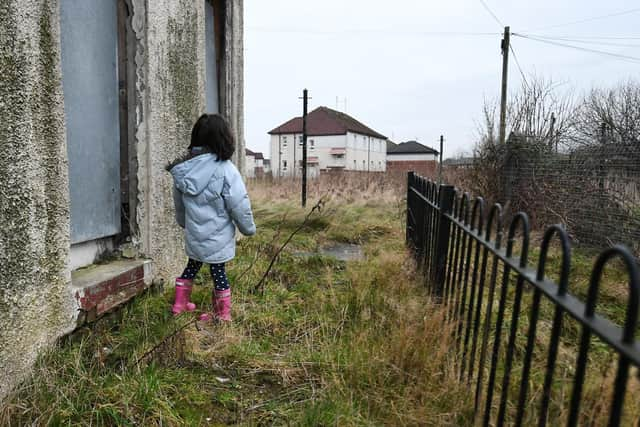Children in deprived areas of Scotland 2.6 times as likely to die before their first birthday
Dr Anna Pearce, an expert at the University of Glasgow, said the “widening of inequality” in some areas of children’s health was “worrying”, particularly as the financial situation for many families is expected to worsen.
Her comments came as a study carried out by the MRC/CSO Social and Public Health Sciences Unit at the University of Glasgow revealed “stark and concerning data” – including that children living in deprived areas are 2.6 times as likely to die before their first birthday as children in less deprived areas.


Advertisement
Hide AdAdvertisement
Hide AdWhile overall infant mortality has declined since 2000, the research showed a rise after 2014 in the most deprived fifth of areas.
With infant mortality continuing to fall in the least deprived 60 per cent of areas, inequalities have widened.
Meanwhile over the the past decade, the number of youngsters at risk of childhood obesity has been rising in more deprived areas and falling in the least deprived.
At an overall population level, the proportion of children at risk of this has remained fairly stable over the past 20 years in Scotland.
But researchers said this situation “disguises potentially worrying differences across areas” – with risk of childhood obesity having fallen slightly in the least deprived areas and increased slightly in the most deprived areas, resulting in a widening of inequalities.
By 2018-19 children living in the most deprived fifth of areas were twice as likely to be at risk of obesity, the research found, with an absolute gap of 7 per cent.
The full report is due to be published before the end of the year but the interim findings also showed increases in the proportion of two-year-olds who had not been immunised against measles, mumps and rubella in three of the five most deprived areas in Scotland.
Here the absolute gap between the most and least deprived areas had increased from 0.8 per cent in 2014 to 4.5 per cent in 2021, with relative inequalities doubling.
Advertisement
Hide AdAdvertisement
Hide AdSince 2016 Scotland has not met the World Health Organisation target of having 95 per cent of children immunised with the MMR vaccine by the age of two – with this currently only achieved in the least deprived 40 per cent of areas.
Speaking about the findings, Dr Pearce, Wellcome Trust senior research fellow at the MRC/CSO Social and Public Health Sciences Unit, said: “This widening of inequality in some areas of children’s health, including the risk of childhood obesity, is worrying, especially with families’ financial circumstances expected to worsen.”
She added: “
“This is a national problem for Scotland, and the data show a growing inequality gap.”
The research is part of an independent review being undertaken by the UK-focused charity the Health Foundation, working with Scottish research partners and an expert advisory group.
It hopes to produce evidence that will influence policy in a bid to improve long-term health and close the gap between the richest and poorest.
Comments
Want to join the conversation? Please or to comment on this article.